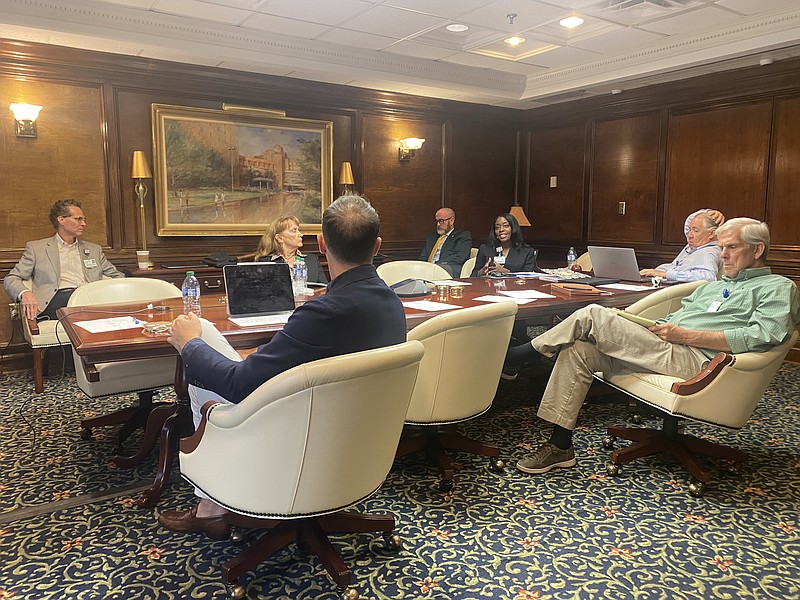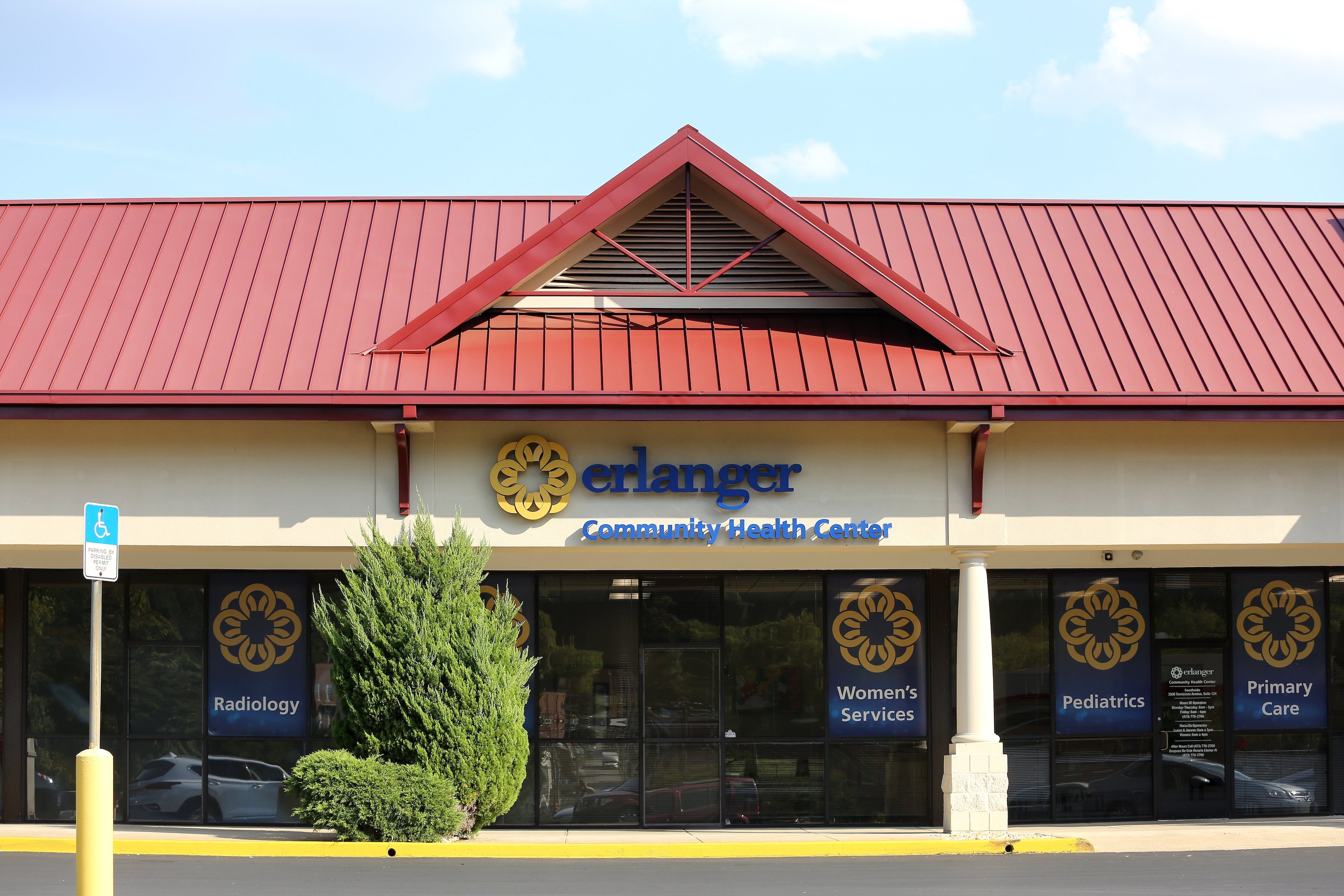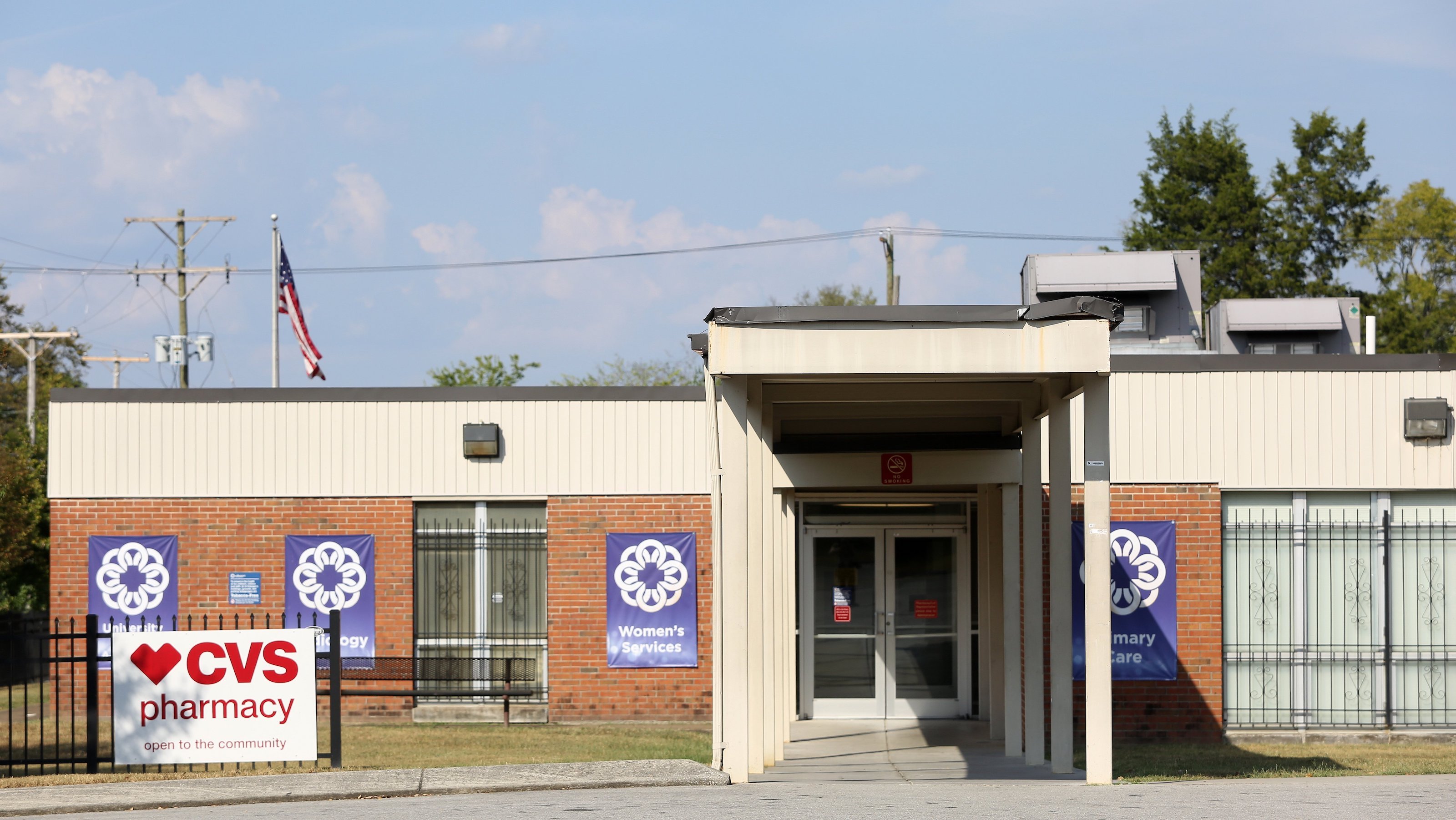Though much of the responsibility over Erlanger Health now lies with a private board, oversight of Erlanger's three community health centers and employee pension plan are among the duties that remain for board members of the Chattanooga-Hamilton County Hospital Authority, a government entity formerly known as Erlanger Health System.
Erlanger Community Health Centers CEO Angel Moore briefed trustees on the restructured hospital authority board, which is comprised of six members, on the history and importance of the clinics during the public board's first meeting since the bulk of Erlanger's business and operations transferred July 1 to a newly formed nonproft private entity.
The three clinics — on Dodson Avenue, Tennessee Avenue and Lyerly Street — have federally qualified health center designations, a model that emerged in 1965 as part of President Lyndon Johnson's War on Poverty. The clinics are partially funded by the federal government and provide primary care services regardless of a patient's ability to pay.
The idea behind the model is that by offering a broad range of primary care services under one roof in underserved areas, health care will become more accessible to vulnerable populations, the overall health of those communities will improve, and the burden on hospital emergency rooms will be lessened.
While the services aren't free, patients pay on a sliding scale based on their income level and are connected to resources that can help them better afford their care.
Moore said Erlanger's hospital data supports that the model works.
"If we're able to place them (patients) in primary care medical homes, we take them out of the system," she said during the board meeting last week, noting "it really does save the hospital a lot of money."
In 2022, the clinics conducted more than 37,400 in-person patient visits and treated nearly 14,800 patients — with the vast majority of them being at or below 200% of the federal poverty level. Services include general adult primary care, pediatrics, obstetrics and gynecology, and dental and behavioral health care.
To remain eligible for the federal grant that supports the centers, ultimate oversight of the centers must stay under the authority board, but Erlanger Health will provide administration and support services to the centers. That support includes funding, personnel, administrative services, office and clinical space, technology services, equipment, records and supplies needed to operate the centers.
Authority board Chair Ken Conner said during the meeting that trustees will dive into the status of the employee pension plan during the authority board's August meeting.
Similar to the health centers, Erlanger Health will provide administrative support and funding for the pension, including an annual contribution of $11.45 million or greater to the plan.
Conner said the pension plan is now 60% funded, which is an improvement in the three years since the Erlanger board of trustees voted to suspend lump-sum payments from the plan until it was brought to an 80% funding level. At that time, the pension was 36% funded.
(READ MORE: Erlanger pension funding dips slightly in 2022)
Conner and Erlanger CEO Jim Coleman, who was then an Erlanger board member, spearheaded the board's plan to begin stabilizing the pension in 2020.
While the authority board is now primarily comprised of new members, Conner is the lone trustee from that era to remain on the authority board rather than transfer to the new Erlanger Health board.
With the exception of Dr. Chris Poole, chief of Erlanger's medical staff, the four other members of the authority board were appointed to their roles in the past two months.
Those members include Cory Gearrin, deputy mayor of Hamilton County; Jeff Hollingsworth, an attorney and recently retired Circuit Court judge; and Rebecca Hunter, who previously served as commissioner of the state Department of Human Resources.
Hamilton County's legislative delegation also recently appointed David Queen, a CPA from Hixson, to the authority board.
Contact Elizabeth Fite at efite@timesfreepress.com or 423-757-6673.


